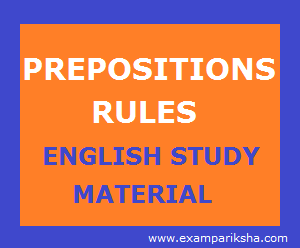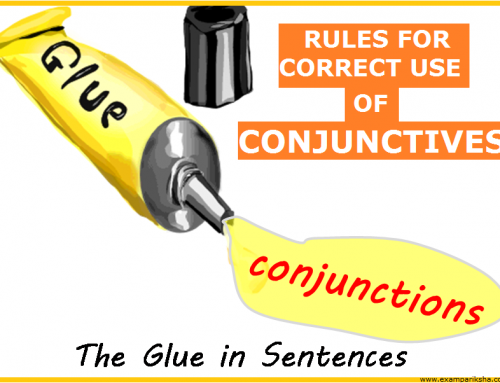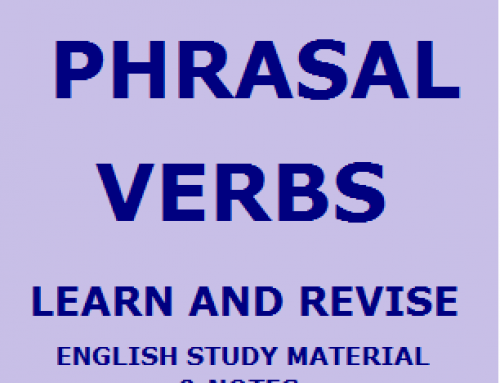A preposition is defined as a word which is placed before a noun or a pronoun or a noun equivalent to show some relationship between that and some other word present in the sentence.
For instance;
- John gave a lecutre on socialism.
- The award is given to him.
- Her objection is to what all you say.
The italicised words are known as prepositions because they generally take position before(pre) a noun.The preposition is understood to govern the noun which follows it. The ‘object’ of the preposition is the noun.
Moving on from single word prepositions, there are also phrases which perform the work of prepositions. They are called ‘Phrase Prepositions’. Therefore, to sum up the type of prepositions:
- Single word prepositions :simple prepositions [on, in, at, after, with, above, under, etc.]
- Phrase Prepositions : Complex prepositions
Complex Prepositions are formed by following major ways:
- Verb/adjective/conjunction + preposition [except for, due to, because of, owing to, but for, etc.]
- Adverb + preposition [apart from, along with, on to, away from, as for, out of, upto, such as, together with, etc.]
- Preposition + noun + preposition [on account of, in comparison with, by means of, in view of, in accordance with, instead of, in spite of, etc.]
P.S. Under certain circumstances, it becomes necessary to end a sentence with a preposition. English grammar has the flexibility to allow for that. Take the following example to understand the point;
- This is the girl I gave the book to.

- This is the hospital that I was born in.
Rules for Prepositions:
1. A preposition is placed at the end of a sentence in either of the following ways:
- When a relative pronoun is understood in the sentence. [This is the girl you spoke to.]
- When the relative pronoun in a sentence is ‘that’. [ Here is the pencil that you are looking for.]
- If a preposition governs an interrogative pronoun or an interrogative adverb, it is placed at the end of sentence. [What are you looking at? ]
- If a preposition governs a relative pronoun, then it is placed at the end of sentence. [ This is the teacher whom I spoke about.]
- When the preposition is used with the infinitive that is placed at the end of sentence. [ Do you have a place to sit on?]
2. Some words with prepositions can take the gerund as well as the infinitives. For instance;
- She is afraid of going out alone at night.
- She is afraid to go out alone at night.
3. A preposition can be used at the beginning of an interrogative sentence. For instance,
- To whom are you referring?
- In which country do yo live?
4. Prepositions [from, since, for] are used with reference to time. More specifically, [from, since] indicate a point of time. And [for] indicates a period or length of time. For instance;
- I have not seen her since March..
- I have not seen her from March.
- I have not seen him for seven months.
5. The verbs which are placed immediately after prepositions are written usually in gerund form. For instance;
- Jacob insisted on buying a computer.
- He left the hotel without paying the bill.
These are the major rules pertaining to the use of prepositions. We hope these short notes centered around rules for correct use of prepositions are helpful for students who want to revise the subject prior too exams. If you found this post helpful, tell us in the comments below. Thank you for visiting!





